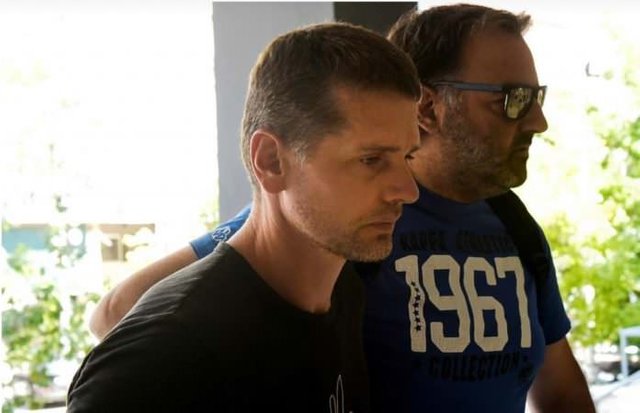Russian National Arrested in Greece with Ties to Money Laundering, BTC-e, Mt. Gox Theft
Alexander Vinnik, 38, has been arrested in Greece on a U.S. warrant. While he is suspected of running one of the largest online money laundering operations, additional reports are emerging naming him as the mastermind behind the Mt. Gox heist that sent Bitcoin spiraling out of control in 2013.
The Man Behind the BTC-e Exchange
For almost seven years, BTC-e has operated as one of the oldest digital currency exchanges in the world. During that entire time, the people behind the company have been completely anonymous.
Until today.
The alleged mastermind behind a multi-billion dollar money laundering scheme and, according to sources close to the exchange, a key person behind BTC-e has been unmasked as Alexander Vinnik, a Russian national who was arrested today in Greece. Vinnik is wanted in the United States on suspicion of money laundering at least $4 billion USD through bitcoin transactions.
Vinnik is currently being held in custody by Greek authorities pending a U.S. extradition request.

Greek police have stated:
An internationally sought 'mastermind' of a crime organization has been arrested. Since 2011 the 38-year-old has been running a criminal organization which administers one of the most important websites of electronic crime in the world.
With Vinnik's extradition, the U.S. investigation will go into full swing. This is the latest in a series of U.S. efforts to curb cybercrime worldwide. Last week, a multi-national coordinated raid involving the U.S. and several other countries resulted in the takedown of the Darknet site known as Alphabay.
BTC-e have long been known for their lax regulations user identity verification and their uncooperative nature when it comes to anti-money laundering organizations. Perhaps coincidentally, the exchange has conspicuously been offline since last Thursday, with the website currently citing “unscheduled maintenance” as the cause of the interruption of service.
A feed of tweets from the BTC-e is on the site as well to keep users informed.
Ties to the Mt. Gox Bitcoin Hack
Vinnik was also found to be in control of a sizable number of Bitcoins that could possibly be traced back to the hack of the Mt. Gox exchange back in 2013. A group of security experts known as WizSec published a blog post earlier today detailing how the hack took place. The group maintains that Vinnik has been their prime suspect in their years-long investigation into the Bitcoin theft and that the same conclusions about his involvement were made independently by other teams working to uncover what really happened.
WizSec explains:
In September 2011, the MtGox hot wallet private keys were stolen, in a case of a simple copied wallet.dat file. This gave the hacker access to a sizable number of bitcoins immediately, but also were able to spend the incoming trickle of bitcoins deposited to any of the addresses contained. [...] By mid-2013 when the funds spendable from the compromised keys had slowed to a near halt, the thief had taken out about 630,000 BTC from MtGox.
Not only can the Mt. Gox coins be traced to Vinnik, but other less known heists can be traced to him as well.
According to WizSec:
Coins stolen from Bitcoinica, Bitfloor and several other thefts from back in 2011 and 2012 were all laundered through the same wallets.
Vinnik has denied all accusations against him in a Greek court of law. More information on this story will surely be released in the coming days, so make sure to stay tuned.
Original source: Bitcoinist.com